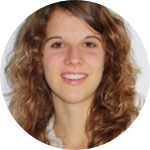About This Project
This study aims to examine the relationship between bilingualism and critical thinking. Monolingual/bilingual individuals will complete an online questionnaire to assess their ability in 5 dimensions; hypotheses testing, verbal reasoning, judging probability, argumentation analysis and problem solving.
Included language sets: Irish, German, Japanese, Chinese. This makes findings of this research cover cross-language as well as cross-cultural differences.
Ask the Scientists
Join The DiscussionWhat is the context of this research?
The proposed project investigates the influence of bilingualism on critical thinking (CT) with the related goals of (i) clarifying the impact of dealing with two languages on an individual’s thought processes; (ii) examining for differences in CT as a function of language ability, while controlling for the languages examined in the study.
Despite the belief that bilingualism negatively influences the development of verbal skills, research has shown that there is a broad field within human cognition that does benefit from second language acquisition. Positive outcomes have been found in relation to many cognitive tasks, including attention and executive functions.
What is the significance of this project?
Studying diverse language pairings makes findings of this research cover cross-language differences as well as cross-cultural differences which is very unusual in the research area.
The study aims to control for language. This will ensure findings that lead back to differences in cognitive performance as opposed to performance which differs due to semantic/syntactic differences between two languages. English- Irish bilinguals will be one set of participants, alongside German- English, Mandarin Chinese – Japanese and Japanese– English bilinguals. To recruit and test bilinguals in these groups, research cooperations are agreed with Kyushu University (Japan).
What are the goals of the project?
An assessment has been put together built upon the theory and definition of CT of one of the leading researchers in the area, Diane Halpern. The assessment was translated into various languages and is now being distributed for data collection. Data collection in Ireland is nearly finished, still ongoing in Germany and just started in Japan and China.
The assessment consists of a language background questionnaire followed by the CT scenarios. It's online (surveygizmo) and available to participants all over the world, advertised through a website (www.bilingualthinking.weebly.com).
Outcomes of this research aim to highlight the extensive positive role of growing up speaking two languages on an individual and societal level.
Budget
Data collection in Ireland and Japan is done through an undergraduate degree rewards point system. Data collection in Germany is promoted by a raffle for an Amazon voucher.
The common way in China for data collection is reimbursement of participants. As the last few months showed it won't be possible to collect data of 60 participants (30 per group, Monolingual/Bilingual) without being able to offer reimbursement.
I am a self funded PhD student in my third year of studies and have managed to fund everything up to now including all other data collection from my own pocket.
I won't be able to continue the Chinese data collection without financial support/investment in my research.
Endorsed by
 Project Timeline
Project Timeline
The next few months will be completely focused on data collection.
Recruitment strategies:
- Specific Facebook/Linked In groups: e.g. Germans abroad/in USA/UK/Ireland etc
- Critical Thinking networks through Facebook and Linked In
- Through participants (asking to pass on link to interested friends)
- Posters in Universities
- Websites like “callforparticipants.com”
Following this I am going to present the data and write up articles for publication.
Jun 22, 2017
Project Launched
Sep 30, 2017
Finish data collection in Ireland
Oct 23, 2017
Present first findings (Irish sample) at international conference (Fechner Day, Fukuoka, Japan)
Dec 22, 2017
Finish data collection in Germany, Japan, China
May 01, 2018
Write paper for publication on data
Meet the Team
Sophia Arndt
I, Sophia, born in Munich, Germany, completed my undergraduate degree at the Paris Lodron University in Salzburg, Austria, in 2013 with a Bachelor of Science. As part of my studies I spent my second year at NUI Galway as an Erasmus student.
After completing my Bachelor Degree I returned to Galway to do a year long internship funded by the National Agency for Lifelong Learning OEAD for a company called Assessment Innovation (AI). As a member of the development team I worked on the development of a set of assessments of basic and occupational cognition for managers, focusing on critical thinking and leadership skills. Other areas covered were social cognition and self-efficacy.
The topic of Critical Thinking was what I spent most of my time on during the internship. I developed a set of scenarios including questions as a critical thinking assessment, aiming at assessing middle managers of international companies. It captivated me to do research on the topic and when I decided to commence a Ph.D. I was sure critical thinking should be my main focus.
The combination with bilingualism originates from my own personal interest and my fascination with languages. My mother tongue is German, I have learned French at school, Spanish at a summer school, and English since I was 11. The differences and similarities between languages and cultures amaze me and I love being able to make this part of my study.
The network I am working in at the moment seems to be ideal for this research, situated in Galway, in the centre of the Gaeltacht, where the Irish language is prevalent like nowhere else. I have also established connections to Ludwig Maximilian University Munich and Technical University Kaiserslautern in Germany and to researchers in Japan, who I have worked with in the past, for example when I spent two months as a visiting researcher at Kyushu University, Fukuoka, Japan last year.
Lab Notes
Nothing posted yet.
Additional Information
In order to measure individual capacity for critical thinking, Halpern (2010) developed a self-report assessment tool known as Halpern's Critical Thinking Assessment (HCTA). The HCTA examines five dimensions of critical thinking; verbal reasoning, argument analysis, thinking as hypothesis testing, likelihood and uncertainty, and decision making and problem solving (Halpern, 2010). Due to the HCTA's unavailability in most of the target languages of this research, the HCTA it self was deemed an infeasible measure for the present research. However, using the theory which Halpern (1998) has outlined as well as the subcategories she includes in her measure we were able to search through published literature which measures these subcategories. We then developed and translated a collection of a number of 'mixed measures' of published tests which evaluate these abilities.
The current research is a pioneering study in the field of bilingualism. There is very little psychological research currently available on multiple language cohorts and none in relation to CT. Research on CT and bilingualism in general is also sparse. The research aims to ascertain whether bilingualism is related to CT, and to explore the nature of this relationship.
Project Backers
- 2Backers
- 8%Funded
- $75Total Donations
- $37.50Average Donation

